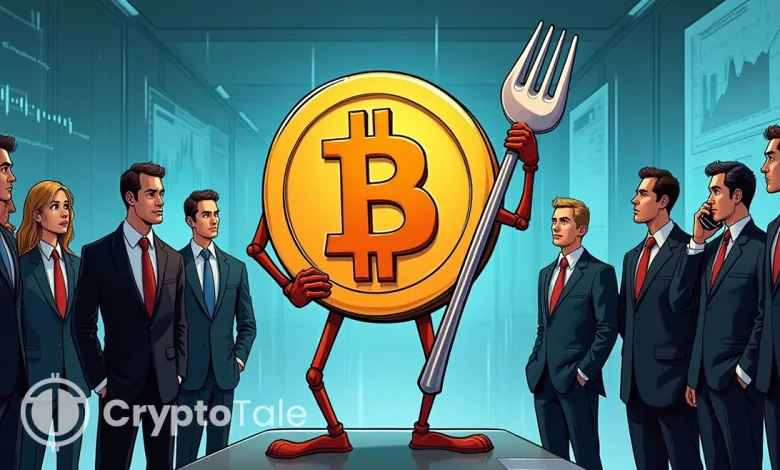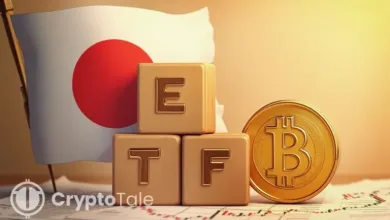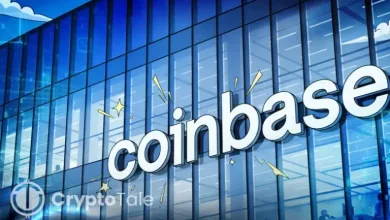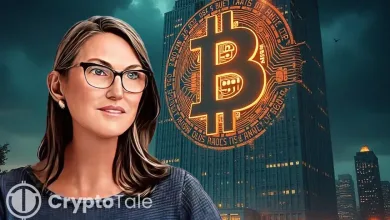Luke Dashjr’s BTC Proposal Ignites Legal Threat Controversy

- Bitcoin soft fork proposal triggers backlash over alleged legal threats to opponents.
- Critics argue the update undermines Bitcoin’s core principle of open participation.
- Luke Dashjr defends the plan as protection against illegal content on the blockchain.
A new proposal for the Bitcoin protocol has caused quite a debate among BTC proponents. The proposal was published on Friday by Bitcoin core developer Luke Dashjr. It outlines a limited 12-month soft fork to restrict the amount of non-financial data included in BTC transactions.
The proposal comes amid the ongoing Bitcoin Core versus Knots debate, which centers on Bitcoin’s purpose and the role of non-financial data in the network. Dashjr’s suggested soft fork aims to prevent illegal or immoral content from being embedded in the blockchain. Developers argue that the Bitcoin Core v30 update, which increased data capacity, may expose participants to legal risks if illicit material is included in transactions.
Bitcoin Community Erupts Over Legal Threats in Fork Proposal
Controversy erupted when readers noticed a section that seemed to threaten dissenters. Line 261 of the proposal reads, “there is a moral and legal impediment to any attempt to reject this soft fork.” Lines 270 to 272 continue, stating that rejecting it “may subject you to legal or moral consequences” or could result in “a split into a new altcoin like Bcash.”
This language sparked immediate backlash on X. Many users claimed it undermines Bitcoin’s founding principle of permissionless participation. Critics warned that legal pressure in a consensus-driven system contradicts the decentralized ethos on which Bitcoin was built.
A Bitcoin educator and systems engineer known as Bam described the wording as “Orwellian,” comparing it to the oppressive control portrayed in George Orwell’s novel 1984. Developer Ben Kaufman called the clause “the clearest attack on Bitcoin,” and stated that coercion has no place in open-source development.
Canadian cryptographer Peter Todd shared screenshots of Dashjr’s comments. He claimed the developer expects adoption of the soft fork through fear of legal repercussions. Galaxy Digital’s Alex Thorn agreed with Todd, calling the approach “an explicit attack on Bitcoin” and “incredibly stupid.”
Bitcoin Faces Risk of Chain Split Amid Fork Dispute
Some users expressed concern that disagreements over activation could lead to a chain split. If miners and participants fail to reach consensus, the network might divide into separate blockchains. This potential outcome recalls the 2017 Bitcoin Cash fork, which resulted from disputes over scalability and transaction policy.
Dashjr responded to the backlash, denying that the proposal criminalizes opposition. In a reply to a user claiming rejection could be illegal, he stated, “It doesn’t say that. Maybe you can propose a clarification if you think it’s unclear.”
According to Dashjr, the proposal has faced no technical objections. He insists the goal is to reduce legal exposure by restricting harmful data types, not to enforce compliance through threats. He argued that limiting certain forms of onchain content protects users and miners from potential criminal liability.
Related: Sygnum Bank and Debifi Unveil MultiSYG Bitcoin Lending Platform
The dispute has deepened the divide between Bitcoin purists and those supporting broader blockchain applications. Opponents of the proposal say any form of censorship contradicts Bitcoin’s purpose. Supporters counter that filtering non-financial data is necessary to preserve the network’s reputation and long-term functionality.
The soft fork proposal has been a historic milestone in the history of BTC. For some, this is a measure to secure legality. To others, it represents a shift away from Bitcoin’s open ethos toward increased control and centralized influence. The dispute shows that even Bitcoin’s identity and its system for governance are not as fixed as they seem.




